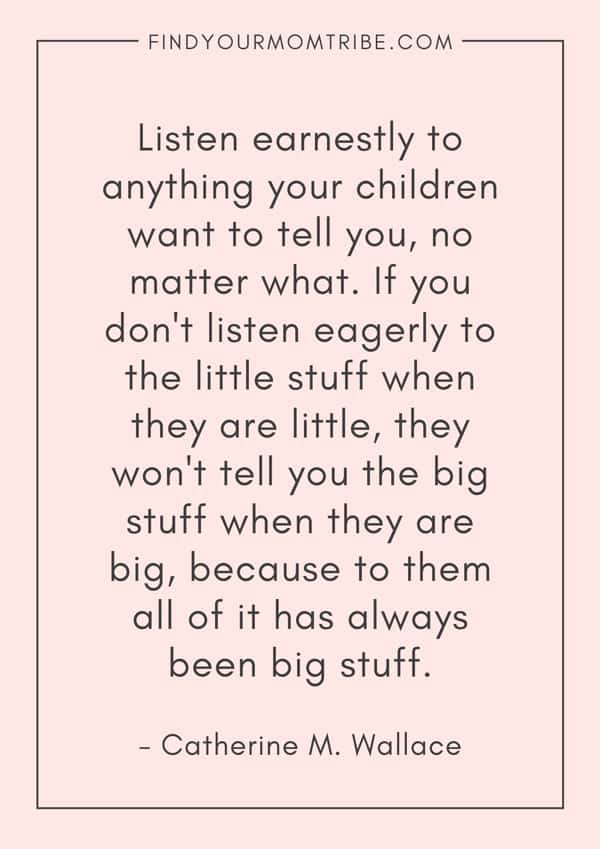Gentle parenting, peaceful parenting, positive parenting…whatever you choose to call it, many moms aim for it.
But where do you start? Parenting is difficult and kids definitely know how to push their mama’s buttons.
So many times, I’ve vowed to be a more gentle parent, only to be triggered by *another* toddler meltdown or kids screaming at each other.
It’s hard. Being a mom is hard.
But the good news is, each day is a new day to begin again.
I don’t know where you are in your parenting journey. Maybe you’re brand new and you can’t imagine losing your cool with your kiddo.
Or, maybe you’re a seasoned parent who has been worn down. You’re tired. You yell, even though you swore you never would.
Oh, friend! I wish I could give you a big hug. You’re not alone.
There’s no such thing as a perfect parent.

Ideas for How to be a Gentle Parent
Since this is the ultimate guide for how to be a gentle parent, I’ve broken this guide up into several articles:
- Building and maintaining a close-knit relationship with your child (you are here!)
- Positive discipline with a gentle approach.
- Modeling respect by respecting your child (article coming soon!)
Let’s dive in!

How to build and maintain a close relationship with your child
Of course, building a close-knit relationship with your child won’t be the same for everyone.
Each child is different, and each child has different needs depending on their age.
But, there are a few key themes that are common for gentle and good parenting a child of any age.

1. Gentle Parenting = Trust
Establishing a foundation of trust is crucial for achieving your parenting goals.
Kids need to know they can trust you.
This isn’t an exhaustive list, but here are some ways that we can build trust with our kids.
- This means following through on your promises (and not making promises we don’t intend to keep!)
- Telling the truth and not misleading them.
- Keeping your cool when they confess something to you. (More on this later, keep reading!)
- Being there for them without judgment when they express their needs, feelings, and ideas.
- Not talking negatively about them to others, or sharing potentially embarrassing information about them to others.
- And, not spilling a “secret” that they’ve told you in confidence – this is so important for a healthy relationship between parent and child.
I know all of these things are easier said than done.
It’s easy to placate a child by saying, “Okay, honey, we’ll go to the park tomorrow,” without intending to do so.
But in the long run, they’ll learn that you aren’t trustworthy.
In order to build a close-knit relationship, there must be trust.
In terms of not judging them, here’s what I mean.
Often times I catch myself saying, “That’s enough! Stop crying!”, or, “Calm down right now!”
Not only is this unhelpful (and rarely works), but it also communicates to your child that they can’t express their emotions in front of you.
You are their safe space.
They need to know that you can handle whatever big emotions they’re feeling.
And when they come to you to confess something, like, “Mommy, I have gum in my hair!” It’s really important not to blow up at them.
It’d be easy to lose it and say, “I told you not to be chewing any gum! Didn’t I tell you it’d make a mess and you’d get gum in your hair?!”
(You get the idea.)
One simple thing we can do when our child confesses something is to validate them and assure we’re willing to help.
In this scenario, a good thing to say would be, “Thanks for telling me, sweetie. It must be scary to have gum tangled up in your hair. I’ll help you get that taken care of.”
Let’s work on being more trustworthy to our children.
RELATED: From Angry Mom to Calm Mom (In 0.5 seconds!)

2. Gentle Parenting = Speaking their love language
What is it that makes your child feel loved?
Does your child thrive on physical affection, like hugs and snuggles? Or do they need their space?
Do you find that your child really thrives when you affirm them with words?
Write him a letter telling him how much you love him and how proud you are of him. If he’s too young to read, you can read it to him.
Does your child feel loved when you give them a gift?
Be sure to give them special tokens of your love. It doesn’t have to be a toy or something store-bought.
It can be something simple like a picture you drew them or their favorite dessert you baked.
Get to know your child’s love language and be intentional about filling up their love bank every single day.
One thing that ALL children have in common is that they crave one-on-one TIME with their parents.
There’s an old saying that children spell love T-I-M-E. And it’s so true!
I know you’re super-busy.
And it’s so hard to make time for everything on your to-do list.
But even a few minutes a day of 1 on 1 attention can make a huge difference in the life of your little one and ensure you’re raising a happy child.
Ideas for spending quality time with your child:
- Turn yout home into a play area, and get down on the floor and play with them. (I know, this isn’t always fun for you, but kids LOVE it.)
- Play a family game with them. (For younger kids it might be peek-a-boo, for older kids it might be a board game or video game.)
- Go outside and PLAY with them.
- Snuggle up on the couch and watch a movie together.
- Bake cookies together (try my delicious lemon cookie recipe).
- Read aloud to them (yes, even older kids!)
RELATED: Best Interactive Books for Babies: 31 Reads Your Baby Will Adore

3. Gentle Parenting = Learning to communicate and listen effectively
Communication is something that’s so important, but also something that many people struggle with.
Communication in personal relationships isn’t something that’s taught to us. It isn’t something that comes naturally to us, either.
Most of us learn communication by how it was modeled to us as children.
For some, we were yelled at as kids, and we struggle with yelling at our kids, too.
It’s something that takes hard work and effort to change, but it will make you a better mom.
Communicating with your child can be tricky.
On one hand, you don’t want to speak down to them, but on the other hand, you don’t want to talk over their heads.
On one hand, you don’t want to be too guarded or private with them, but on the other hand, you don’t want to overshare. (TMI!)
Younger kids especially love to talk your ear off.
For most moms, it’s easy to get frustrated when you’re running around trying to get things done and your child is talking non-stop about the latest episode of Paw Patrol. (Every. Single. Detail.)
When I find myself getting frustrated, I try to remind myself of this quote.

But, there are times when you do need silence.
Instead of saying, “Please hush, I’m trying to think!”, try saying, “I love your ideas and I love hearing about ___. Can we pause your story for a bit while I ___? Then, we’ll pick up where we left off and I’ll be looking forward to hearing the rest.”
Yes, it takes more effort, but the end result is a child who doesn’t feel undervalued or like he isn’t important.
I don’t think communication is something we ever fully master.
It’s always a work in progress.
Let’s aim to work on being better communicators and listeners each and every day.
Read next: 14 Family Rituals to Make You Feel Closer
Did this post resonate with you? Please share or pin it for later. You can also stay in the loop and follow us on Facebook, Instagram and Pinterest.

This post contains affiliate links. Please see our full disclosure for more info.

